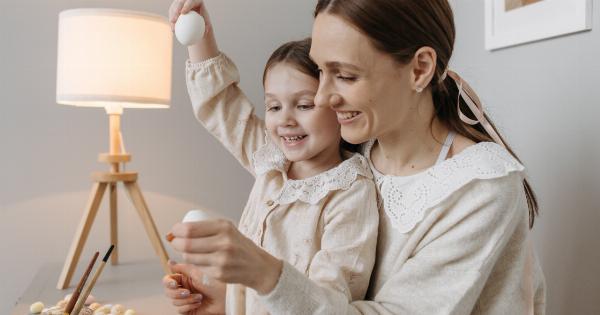When it comes to fertility treatments, in vitro fertilization (IVF) is one of the most popular options available. However, traditional IVF can be quite intense and expensive, which makes it inaccessible for many couples.
That’s where mini IVF comes in. If you’re considering fertility treatment and want to know if mini IVF is the right choice for you, this comprehensive guide has all the answers you need.
What is Mini IVF?
Mini IVF, also known as minimal stimulation IVF or mini-stim IVF, is a more affordable and less invasive alternative to traditional IVF.
While traditional IVF involves high doses of fertility medications to stimulate the ovaries and produce a large number of eggs, mini IVF uses lower doses of medication to produce fewer eggs, typically around 2-5. The goal of mini IVF is to retrieve a smaller number of high-quality eggs instead of a larger quantity of eggs.
Who is Mini IVF Suitable For?
Mini IVF is most suitable for couples who meet specific criteria. These include:.
1. Younger Women: Women under the age of 35 who have normal ovarian function and a good ovarian reserve are ideal candidates for mini IVF.
Since younger women tend to have more eggs of higher quality, mini IVF can maximize their chances of success without the need for excessive medications.
2. Older Women: Women over the age of 35 with a diminished ovarian reserve or poor response to fertility medications may also benefit from mini IVF.
It is a less demanding procedure that reduces the risk of ovarian hyperstimulation syndrome (OHSS) and other complications.
3. Women with PCOS: Women who have polycystic ovary syndrome (PCOS), a condition that can result in irregular ovulation and lower-quality eggs, may find mini IVF to be a suitable option.
Since the goal is to retrieve fewer eggs, the quality of the eggs becomes more important than the quantity.
4. Cost-Conscious Couples: Mini IVF is significantly less expensive than traditional IVF, making it a more affordable option for couples who are concerned about the financial aspect of fertility treatment.
By using fewer medications and monitoring visits, the overall cost of mini IVF can be significantly reduced.
The Process of Mini IVF
The process of mini IVF is similar to that of traditional IVF, but with some notable differences:.
1. Ovarian Stimulation: Instead of the high doses of medications used in traditional IVF, mini IVF involves using lower doses of oral or injectable medications for a shorter duration to stimulate the ovaries.
This results in the development of fewer but higher-quality eggs.
2. Monitoring: Throughout the stimulation phase, regular monitoring is done by ultrasound and blood tests to track the growth and development of follicles. This helps the fertility specialist adjust the medication dosage if necessary.
3. Egg Retrieval: When the follicles have reached the desired size, an egg retrieval procedure is performed.
This is a minimally invasive procedure in which a thin needle is inserted into the ovaries under ultrasound guidance to retrieve the mature eggs.
4. Fertilization and Embryo Transfer: After the egg retrieval, the eggs are fertilized with sperm in the lab, either through traditional IVF or intracytoplasmic sperm injection (ICSI).
The resulting embryos are monitored for several days before being transferred to the woman’s uterus.
5. Freezing of Embryos: If more embryos are produced than needed for the current cycle, they can be frozen and stored for future use. This allows couples to try for pregnancy again without undergoing the full stimulation process.
Success Rates of Mini IVF
The success rates of mini IVF can vary depending on various factors, including the age and overall health of the woman, as well as the quality of the sperm used.
However, studies have shown that mini IVF can offer comparable success rates to traditional IVF in many cases. While the pregnancy rates may be slightly lower, the reduced cost and invasiveness of mini IVF often make it a worthwhile option for many couples.
Advantages and Disadvantages of Mini IVF
Like any medical procedure, mini IVF has its own set of advantages and disadvantages. Understanding these can help you make an informed decision:.
Advantages:.
- Lower cost compared to traditional IVF.
- Reduced medication doses and minimal side effects.
- Less invasive procedure with a quicker recovery time.
- Lower risk of complications, such as OHSS.
- Potential to achieve a pregnancy with fewer embryos.
Disadvantages:.
- Lower chances of multiple pregnancies.
- Possibility of obtaining fewer eggs for fertilization.
- May require multiple cycles to achieve a pregnancy.
- Not suitable for women with severely diminished ovarian reserve.
Considerations Before Choosing Mini IVF
Before embarking on mini IVF, it’s essential to consider the following factors:.
1. Age: Age plays a crucial role in the success of any fertility treatment. Women in their 30s or younger generally have better chances of success with mini IVF.
2. Fertility Diagnosis: Your fertility specialist should conduct a thorough evaluation to determine if mini IVF is suitable for your specific fertility diagnosis.
3. Financial Considerations: While mini IVF is more affordable than traditional IVF, it still requires a financial investment. It’s important to evaluate whether the cost aligns with your budget.
4. Emotional Preparedness: Fertility treatments can be emotionally draining. It’s crucial to ensure you and your partner are emotionally prepared for the ups and downs that come with the process.
Conclusion
Mini IVF offers a less intense and more affordable alternative to traditional IVF for couples struggling with fertility issues.
The decision to pursue mini IVF should be based on a thorough evaluation of your personal circumstances, age, and fertility diagnosis. Consulting with a fertility specialist is vital to determine if mini IVF is the right choice for you. Remember, every individual is unique, and what works for one couple may not work for another.
By considering all the factors and understanding the process thoroughly, you can make an informed decision that gives you the best chance of achieving your dream of starting a family.































